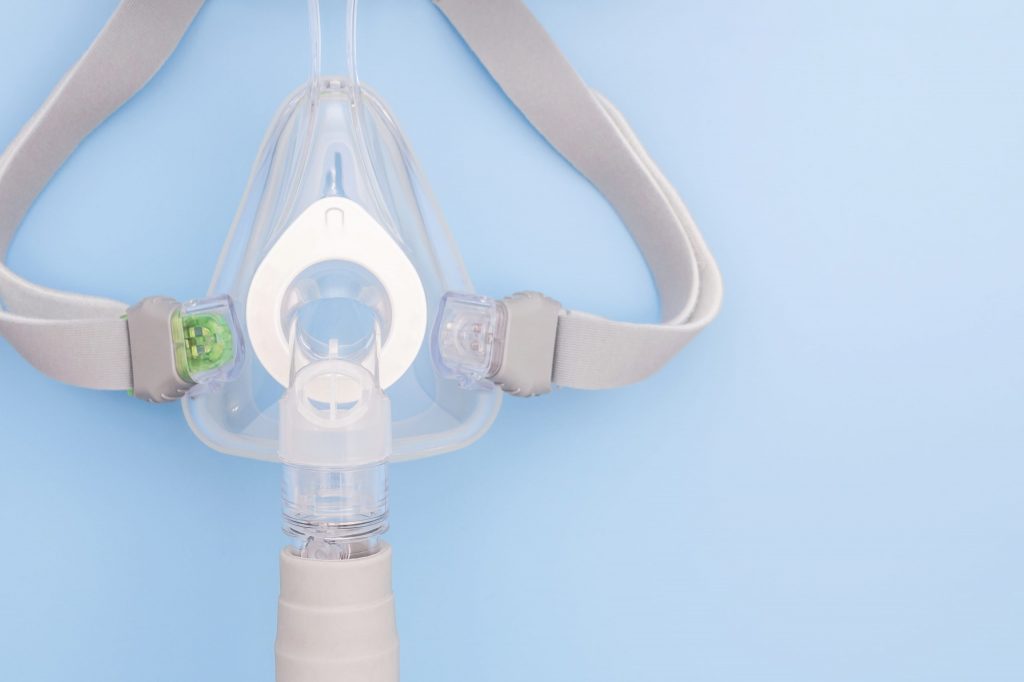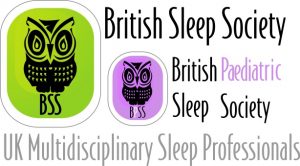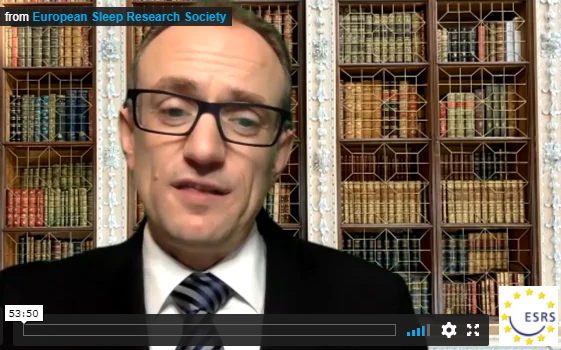Sleep Science Friday: Respiratory Physiology and updates from the British Sleep Society—with Professor Joerg Steier
Sleep Science Friday
It’s the end of another week — grab a coffee/tea/beer/wine and end your week with a quick recap of Sleep Science News!
Sleep Science Friday: Respiratory Physiology and updates from the British Sleep Society—with Professor Joerg Steier
4 December 2020
During sleep, the body goes through physiologic changes, including those related to breathing, such as decreased muscle activity in the upper airway muscles. In healthy individuals, this isn’t a problem; but in some individuals with certain structural/anatomic features (e.g., thicker neck, overweight, etc.), this relaxation can lead to narrowing in the upper airways affecting the ability to sleep and can lead to snoring and sleep apnea. Our breathing is also under the control of a network of respiratory-related neurons. When approaching a patient with sleep-disordered breathing, we should also consider the individual variability in respiratory physiology (Bosi M et al., 2020).
Today, Dr. Lyudmila Korostovtseva (a cardiologist and Research Fellow at the Sleep Medicine Laboratory at the V.A. Almazov North-West Federal Medical Research Centre, in St Petersburg) talked with our guest, Professor Joerg Steier. Professor Steier is the President of the British Sleep Society, Professor of Respiratory and Sleep Medicine at King’s College London, and an expert in respiratory physiology.
The full interview is 53:50 min (see highlights on the introduction of Professor Steier and respiratory physiology; on transcutaneous electrical stimulation for obstructive sleep apnea; and the narcolepsy update).
 We discussed with Professor Steier about respiratory physiology [at 01:58], diagnosing and phenotyping sleep-disordered breathing [at 04:19], and treatment options in obstructive sleep apnea [at 05:40], as well as ways to overcome low adherence [at 10:00], and other difficulties associated with treating sleep-disordered breathing [at 15:17].
We discussed with Professor Steier about respiratory physiology [at 01:58], diagnosing and phenotyping sleep-disordered breathing [at 04:19], and treatment options in obstructive sleep apnea [at 05:40], as well as ways to overcome low adherence [at 10:00], and other difficulties associated with treating sleep-disordered breathing [at 15:17].
Professor Steier shared with us his personal experience in treating patients with sleep-disordered breathing, as well as implementing recent developments in this field, particularly non-CPAP therapy, such as the novel technique of transcutaneous electrical stimulation [at 19:17 to 37:15]. Electrical stimulation methods are rather novel in treating obstructive sleep apnea (Ratneswaran D et al., 2020). Hypoglossal nerve stimulation was approved in 2014 by the FDA to treat obstructive sleep apnea and is an invasive procedure as it requires surgery and an implant. Transcutaneous electrical stimulation was developed as a potential non-invasive alternative. Professor Steier and his colleagues have been working on developing this technique and are currently running a randomized controlled trial (TESLA-home) in the UK.
Professor Steier also gave some insights into sleep-related healthcare management during the COVID-19 pandemic [at 45:46] based on the personal experiences and statements released by the British Sleep Society (such as the audit on the Impact of COVID-19 on UK Sleep Services, and a statement on sleep-related advice during the coronavirus pandemic, for further details see here).
 Last but not least, Professor Steier gave us the latest news from the British Sleep Society, including the launch of the BSS Strategic Plan today (at 42:15) and the BSS Narcolepsy Webinar (at 37:54). The Narcolepsy Webinar was held this afternoon (4 December 2020) and will be recorded and stored on the BSS website.
Last but not least, Professor Steier gave us the latest news from the British Sleep Society, including the launch of the BSS Strategic Plan today (at 42:15) and the BSS Narcolepsy Webinar (at 37:54). The Narcolepsy Webinar was held this afternoon (4 December 2020) and will be recorded and stored on the BSS website.
For additional reading and recent publications from professor J. Steier and the BSS:
Electrical stimulation in obstructive sleep apnea:
- Al-Sherif et al. (2020) Ultrasound assessment of upper airway dilator muscle contraction during transcutaneous electrical stimulation in patients with obstructive sleep apnoea. J Thorac Dis.
- Pengo et al. (2020) Electrical stimulation in obstructive sleep apnoea: the less invasive the better? Eur Respir J.
- Ratneswaran et al. (2020) Electrical stimulation as a therapeutic approach in obstructive sleep apnea – a meta-analysis. Sleep Breath.
On Sleep Apnea Phenotyping:
- Bosi et al. (2020) Qualitative Phenotyping of Obstructive Sleep Apnea and Its Clinical Usefulness for the Sleep Specialist. Int J Environ Res Public Health.
- Pengo et al. (2020) Obstructive sleep apnoea treatment and blood pressure: which phenotypes predict a response? A systematic review and meta-analysis. Eur Respir J.
The impact of COVID-19 on sleep:
- Pérez-Carbonell et al. (2020) Impact of the novel coronavirus (COVID-19) pandemic on sleep. J Thorac Dis.
- Steier J et al. on behalf of the BSS Executive Committee (2020) British Sleep Society: the COVID-19 pandemic response. J Thorac Dis.
- Steier and Moxham (2020) The load and capacity model of healthcare delivery: considerations for the crisis management of the COVID-19 pandemic. J Thorac Dis.
For additional reading and other latest publication on related topics:
On electrical stimulation:
- Byun et al. (2020) Transcutaneous Electrical Stimulation Therapy in Obstructive Sleep Apnea: A Systematic Review and Meta-analysis. Otolaryngol Head Neck Surg.
- Mehra et al. (2020) Upper Airway Stimulation versus Untreated Comparators in Positive Airway Pressure Treatment-Refractory Obstructive SleepAnn Am Thorac Soc.
- Oliven et al. (2020) Electrical stimulation of the whole hypoglossal nerve in patients with obstructive sleep Sleep Breath.
Sleep apnea phenotyping
- Bailly et al. (2020). Clusters of sleepapnoea phenotypes: A large pan-European study from the European Sleep Apnoea Database (ESADA). Respirology.
- Joosten et al. (2020) Assessing the physiological endotypes responsible for REM and NREM based obstructive sleepapnea.: REM and NREM OSA. Chest.
For similar ESRS articles on sleep-disordered breathing, COVID-19 and sleep—see past Sleep Science Fridays:
- Sleep Science Friday: Sleep in the time of corona—with Dr. Christine Blume (20 November 2020)
- Time for a Sleep Revolution (#H2020) with Dr. Erna Sif Arnardóttir (13 November 2020)
- Sleep in the time of COVID (5 October 2020)
- Sleep-disordered breathing (4 September 2020)
- Covid-19 and sleep (31 July 2020)
Have a great weekend everyone and sleep sound!
Just published an article? Want your research to be featured? Saw something interesting? Contact: doris.wu [ at ] esrs.eu.
Not a member yet? Apply here and see our wide range of benefits, including a yearly online subscription to the Journal of Sleep Research, automatic membership to the Federation of European Neuroscience Societies (FENS), support for early career researchers via the ECRN, regular updates via the ESRS Newsletter, promotion of your research, and more.




